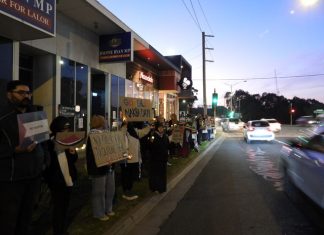By Cameron Tait
Ambulance response times for life-threatening emergencies in Wyndham are worse than five years ago, a new report has found.
The interim report, Working with Paramedics to End the Ambulance Crisis, was compiled by a parliamentary committee. It found paramedics achieved the 15-minute target for code 1 incidents, or the most critical cases, only 69.3 per cent of the time in Wyndham in 2013-14 – down from more than 81 per cent in 2008-09.
Average response times for code 1 incidents, defined by Ambulance Victoria as time- critical cases, such as cardiac arrests or traffic accidents, all rose significantly for Wyndham’s three ambulance branches.
At Point Cook, response times increased from 11.35 minutes to 13.16 minutes, at Werribee from 9.52 minutes to 12.52 minutes, and from 9.48 minutes to 14.04 minutes at Hoppers Crossing.
For code 2 incidents, which are classified as not time-critical and may involve, for example, a broken leg, average responses times from Hoppers Crossing blew out from 17 to 29 minutes, at Point Cook from 22 to 30 minutes and Werribee from 17 to 26 minutes.
Ambulance Employees Australia assistant secretary Danny Hill said he wasn’t surprised by the figures. He said ramping at hospital emergency departments was a “huge issue” along with a flawed ambulance dispatch system.
“When crews in outer areas have to take patients to city hospitals, they will be called upon to respond to cases nearby because they’re the closest unit available,” he said.
“This leaves a vacuum of resources in Wyndham and, as a result, response times are regularly higher than those of inner areas.
“If a person has a cardiac arrest in Wyndham Vale and the nearest available crew is in Sunshine or Footscray and can’t respond for 20 minutes, that could prove fatal,” Mr Hill said.
“Crews can be queued for up to four hours waiting to unload a patient,” he said. “They need to be able to get back on the road straight away.”
Last month’s Victorian Auditor-General’s report into emergency services’ response times found the average time taken for paramedics to respond to 90 per cent of code 1 cases had blown out from 19 minutes in 2009 to 22.4 minutes by 2014.
Auditor-General John Doyle noted response times were not the only measure of emergency service performance. “Other measures such as health outcomes for ambulance patients and community satisfaction are necessary.”






